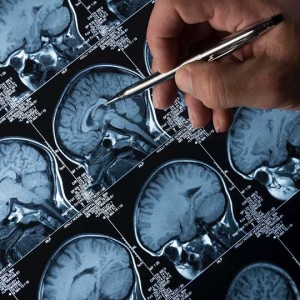Innovative Nano-Technology Teaches Parkinson’s Damaged Neurons To Heal Themselves
Written by |

Researchers from the UNC Eshelman School of Pharmacy are using patients’ own immune cells to enhance the brain’s ability to heal damaged nerve fibers caused by degenerative neurological disorders like Parkinson’s disease.
This innovative research is being conducted in the laboratory of Dr. Elena V Batrakova, PhD, Associate Professor at the UNC Eshelman School of Pharmacy’s Center for Nanotechnology in Drug Delivery (CNDD). Dr. Batrakova’s research is focused on the development of a central nervous system (CNS) delivery method for antioxidants and neuronal growth factors to reduce neuroinflammation and produce neuroprotection in patients with neurodegenerative disorders, such as Parkinson’s and Alzheimer’s diseases.
Dr. Batrakova and her team use inflammatory-response cells, such as white blood cells (macrophages) that can travel toward the inflammatory site, cross the blood brain barrier, and release preloaded drugs in the brain. Using a “Trojan horse” derived method, the team manages to carry the drug in polymer-based nanocontainer, allowing protection against degradation inside the host cells.
In a University press release describing her research Dr. Batrakova, stated, “Currently, there are no treatments that can halt or reverse the course of Parkinson’s disease. There are only therapies to address quality of life, such as dopamine replacement. However, studies have shown that delivering neurotrophic factor to the brain not only promotes the survival of neurons but also reverses the progression of Parkinson’s disease.”
Dr. Batrakova, continued, “By teaching immune system cells to make this protective protein, we harness the natural systems of the body to combat degenerative conditions like Parkinson’s disease.”
This innovative work was made possible by a Technology Enhancement Grant by the North Carolina Biotechnology Center. The grant was awarded to with the purpose to ensure this technology is developed into a viable treatment that can be licensed and commercialized.
In a statement about the importance of the award, Alexander V. Kabanov, PhD, DrSci, the Director of the CDD and professor of nanmedicine, said, “This award is an enormously important step towards further successful commercialization of our very exciting cell technologies. We will continue our translational efforts at CNDD, and very soon I believe we will see these discoveries on the frontiers of scientific moving into clinical practice.”


